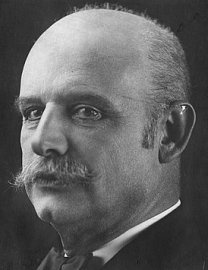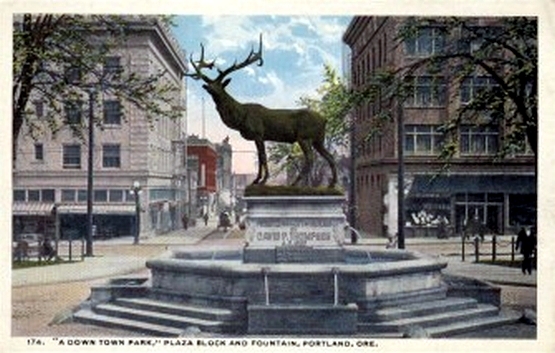Ben Selling
Values Codes I – H – E – L – P
“Ben Selling was said to have given away more money in proportion to his income than any other citizen of Oregon since the state was founded.”
— E. Kombark MacCall, 1979
Ben Selling was born in San Francisco, California in 1852.
His father had emigrated from Germany.
Portland, Oregon
Ben Selling arrived, with his family, in Portland Oregon in 1862, where his father opened a general store.
Selling was forced to leave his studies at the Portland Academy in order to help in the family business.
In 1881, he opened his own business, Atkin, Selling & Company, a wholesale boot and shoe store.
He eventually opened Ben Selling Clothier, a large store at the intersection of Morrison and 4th Street.
Civic
The clothing business was a great success, but to Ben Selling it seemed of secondary importance to his chances for philanthropy.
In 1928, Selling received the inaugural First Citizen Award from the Portland Realty Board, as “the outstanding Jewish leader in Portland.”
He founded and funded The Working Men’s Club, a kitchen for the unemployed during the Panic of 1893 and the Panic of 1907, serving over 450,000 meals.
He also “broke the back” of the Panic of 1907 by taking over the claims of savings depositors in local banks.
He raised $10,000 for Chinese flood victims, $4,000 for Japanese famine aid, and $100,000 for Armenian relief.
He purchased $400,000 Liberty Bonds during WWI.
He supported the Waverly Baby Home.
He established a perpetual scholarship fund to help students attend Oregon colleges and universities.
Additionally, he served on the Port of Portland Commission, and then on the Portland Dock Commission.
Ben Selling was elected as a Republican to the Oregon State Senate in 1910, and served 8 years.
He served as President of the Senate for one session, in 1911.
He also served as Speaker of the Oregon House of Representatives for one session in 1915.
Ben Selling ran for the United States Senate in 1912, losing by a few hundred votes to Harry Lane.
Community
Ben Selling was a prominent member of Temple Beth Israel and a supporter of Neveh Zedek Talmud Torah, as well as Sephardic Ahavath Achim.
Under Selling’s leadership, Portland raised more money for survivors of the Kishinev Pogrom of 1903 than any other city in the country.
The National Council of Jewish Women honored him for underwriting the entire cost of improvements to the Neighborhood House in South Portland.
Selling served as President of the Hebrew Benevolent Association, easing tensions between the older German Jewish settlers and the newer Russian Jewish immigrants
He spearheaded fundraising campaigns for the Jewish Relief Society, B’nai B’rith, and Neighborhood House.
In 1904, as the oldest member of Congregation Ahavai Sholom, Selling was honored with laying the cornerstone for the new synagogue on Southwest Park Avenue.
Family
Ben Selling married Matilda Hess in 1880 in San Francisco.
Their son, Dr. Laurence Selling (1882-1954), became head of the University of Oregon Medical School, Department of Medicine.
A daughter, Rae Selling Berry (1881-1976), was an avid plantswoman. Following her death, her friends purchased her estate and established The Berry Botanic Garden. A conservation program was formed at the Berry Garden in 1983: Berry Botanic Garden Seed Bank for Rare and Endangered Plants of the Pacific Northwest. The botanic garden dissolved in 2011 and became Portland State University’s Rae Selling Berry Seed Bank and Plant Conservation Program.
Ben Selling died 1931, his funeral drawing an enormous crowd.
Sources
- Elaine S. Friedman, “Ben Selling (1852-1931),” The Oregon Encyclopedia, https://oregonencyclopedia.org/articles/selling_ben_1852_1931_/#.XC-AHs9KjCQ
- Steven Lowenstein, The Jews of Oregon (Portland Jewish Historical Society of Oregon, 1987).
- “History of Rae Selling Berry,” Portland State University, https://www.pdx.edu/seed-bank/history-of-rae-selling-berry
Gladys Sturman is curator of this Ben Selling exhibit.
Thanks to Kris Freitag, acting director of the Rae Selling Berry Seed Bank & Plant Conservation Program, for corrections.


